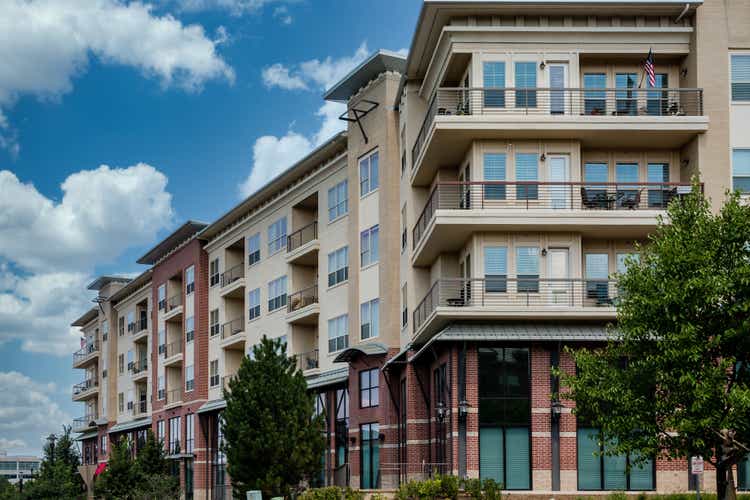- Gen Z is often branded lazy and financially irresponsible—but baby boomer NYU professor Suzy Welch has sympathised that the young generation’s attitude comes down to having “no reason to believe that they’re ever going to have economic security.” Plus, they may feel like it’s pointless to climb the career ladder in the midst of an impending environmental crisis. Other leaders like Mel Robbins agree that Gen Z faces unique problems: sky-high student loans, a growing wealth gap, and homeownership becoming a pipe dream.
Gen Z has been branded a “lazy” generation of employees who love to log in from the couch, max out their credit cards, and set boundaries against working past 5 p.m. Although the young cohort of professionals have previously called out their naysayers for not understanding their unique situation—now leaders are stepping in to back them up.
“Gen Z [has] no reason to believe that they’re ever going to have economic security,” Suzy Welch, professor of management practice at New York University, said on a recent podcast when asked about the generation’s lazy label.
“I don’t know about you but I’m old enough that when I was in college, I thought ‘For sure, I’m going to have more money than my parents.’ And that ‘If I work very very hard I’m going to buy a house someday,’ and this was the assumption.”
The newest class of workers were raised by their Gen X and baby boomer parents with a clear career plan: attend a prestigious college, land a high-paying job, and climb the corporate ladder to C-suite success. But the “American Dream” set-up that’s propelled older generations to six-figure salaries may have crumbled; housing prices have far outpaced salary gains, cost of living is skyrocketing, promotions are scarce, and AI continues to upend high-paying career paths. Plus, there’s general unease about the state of the economy and environment—and Gen Z are skeptical if they’ll even be around to enjoy the fruits of their labor.
“A lot of Gen Z [are] just saying ‘I’m not even sure we’re going to be alive in 20 years because of global warming.’ And ‘The world is probably going to end anyway because of the stupidity of decisions your generations made,’” Welch continued.
Instead of managers beating down on Gen Z for their perceived lack of ambition or workplace indifference, Welch encouraged others to consider where their apathy may be coming from.
“It’s very very hard,” Welch said. “So I think it comes out looking in a way that we don’t understand, the sort of place of vulnerability and sadness that it’s kinda coming from.”
Fortune reached out to Welch for comment.
Gen Z’s naysayers and supporters
Gen Z has been the punching bag of older generations who have decided the young workers are simply less motivated and hard-working than they were in their 20s.
Oscar-winning star Jodie Foster had some harsh opinions about working with Gen Z professionals on the set of the hit crime thriller True Detective. She labeled the young staffers as “really annoying, especially in the workplace,” saying that they would come into work late because they simply “weren’t feeling it.”
Actress Whoopi Goldberg also had some terse words for Gen Z and millennials. The baby boomer, who’s worth an estimated $60 million, dismissed the idea that young people have it worse than her generation did—and reasoned that they’re only struggling to find a high-paying job, buy a house, and start a family because they’re not working hard enough.
“I’m sorry, if you only want to work four hours, it’s going to be harder for you to get a house,” Goldberg said about young people’s work ethic on The View in 2023.
But there’s also a growing network of high-powered professionals standing behind Gen Z, aside from Welch. Multimillionaire podcaster and former CNN analyst Mel Robbins hit back at naysayers who slam young workers, reasoning that they’re under immense stress, pressure, and chaos that she thinks didn’t exist five or six years ago. She said that Gen Z is facing unique problems: homeownership is “out of reach,” hybrid work has changed the professional landscape, the generational wealth gap is “massive,” and student loans are crushing them financially. If Gen Z’s baby boomers and Gen Xers critics think the young workers have it so easy, Robbins invites them to step into their shoes.
“We sit here and we look at twentysomethings and we’re like, ‘Oh, they’re weak or addicted to social media, or all anxious,’” Robbins said in a video posted to her TikTok in April. “Have you stopped to consider what it’s like to be a twentysomething today?”
Gen Z’s bleak economic outlook: debt and homebuying is out of reach
On top of an impending recession, Gen Z got the short end of the stick when it comes to fulfilling major life accomplishments.
U.S. home prices have far outpaced wages, according to the Joint Center for Housing Studies of Harvard University. In June, the median home price in the U.S. was more than $403,000, according to NAR data, while the Social Security Administration reports a national average wage index of about $66,600. Mortgage rates also continue to be stubbornly high, nearing 7%, with only 3% of all homebuyers being Gen Z.
There’s also the issue of sky-high tuition costs, grocery bills, and general living expenses. The average Gen Zer carries more than $94,000 in personal debt—far more than millennials with almost $60,000 in debt, and Gen X with about $53,000 in debt, according to a March Newsweek poll. And the burden is crushing their wallets; about one-third of Gen Z say they’re financially underwater due to inflation, high interest rates, and stagnant wages.
“Many [Gen Zers] are entering adulthood with a heavy financial burden—student loans, credit card debt, and rising costs of living,” Natalia Brown, chief compliance and consumer affairs officer with National Debt Relief, told Fortune. “Their debt feels heavier because it hits earlier—right as they’re launching their careers.”
This story was originally featured on Fortune.com

 1 hour ago
1
1 hour ago
1












 English (US) ·
English (US) ·